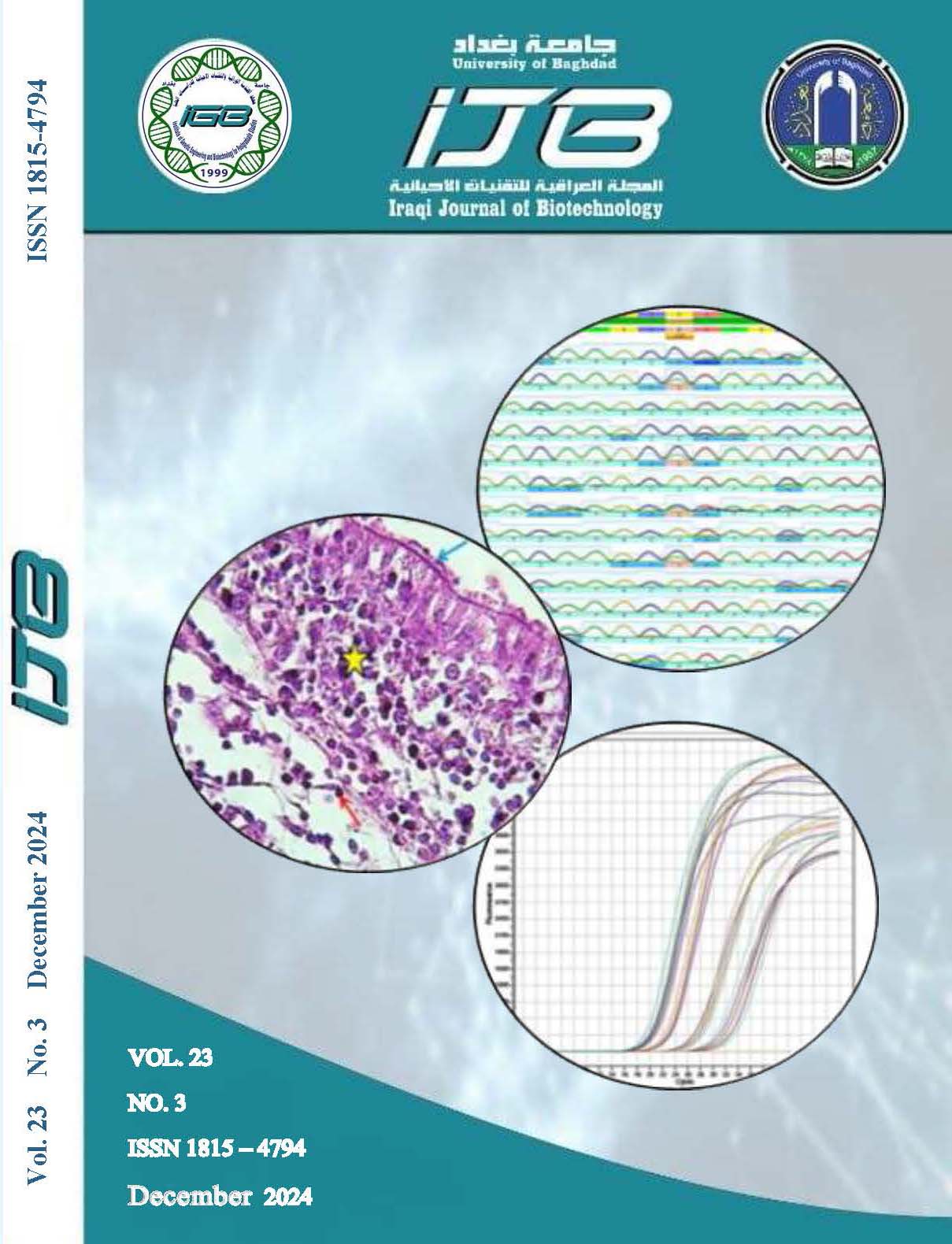The Beneficial Responses of Sodium Butyrate against DSS-Induced Colitis Mediated by Interleukin -10 Overexpression and Gut Microbiota in Rats
Abstract
Colitis can have a negative impact on an animal's growth and productivity as well as its health. Animals who consume dextran sulfate sodium (DSS) may develop colitis. The aim of the inquiry was to assess the beneficial effect of butyric acid as one of the gut microbiota metabolites on the inflammatory response and physiology of the colon in DSS-induced colitis. Rats were distributed equally into four distinct sets. At the final stage of the trial, blood samples were obtained to measure total white blood cells, red blood cells, and interleukin 17A, interferon-gamma in serum. Colon tissue was also gathered for histopathology. In addition, the spleen's interleukin 10 gene was identified. Following sodium butyrate treatment, data analysis revealed a considerably lower total number of white blood cells. While sodium butyrate therapy statistically raised the number of red blood cells. Sodium butyrate drastically dropped serum interleukin -17A, interferon-gamma values. Also, the Section of the colon D group showed severe thickening of mucosa-associated with the marked proliferation of submucosal solitary lymphatic follicles, with expansion into tubular glands. Further, we discovered that oral sodium butyrate treatment reduced the severity of colitis in rats, modified the diversity of the microbiota in the gastrointestinal tract so that pseudomonas aeruginosa predominated in the combination of drugs group, and elevated the expression of the interleukin 10 gene. These findings suggest that sodium butyrate, by reestablishing the equilibrium of gut microbiota dysbiosis, can alleviate DSS-induced colitis in rats.


